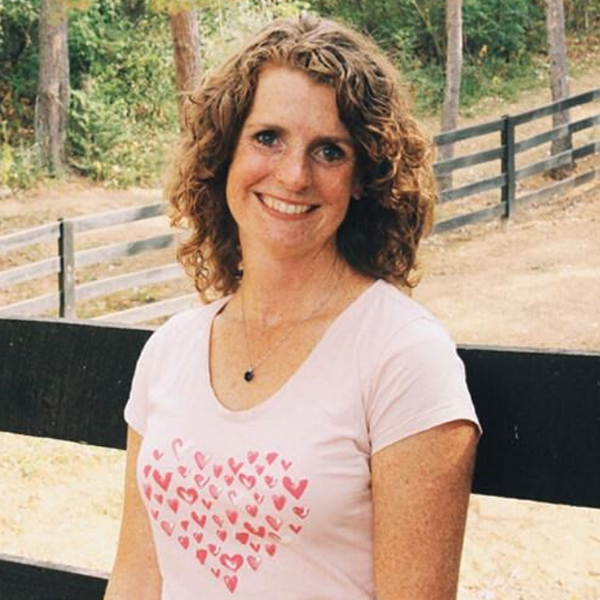This post was written by Angie Hooie, a member of the INCM Blog team.
My husband and I have three kids. All three have some sort of special needs. One son has ADHD, the other son has ADHD and borderline Asperger’s, and my daughter has RAD and borderline Personality Disorder. Because of our family, special needs is a big passion of mine.
Jesus said, “Let the little children come to me, and do not hinder them, for the kingdom of heaven belongs to such as these (Matthew 19:14).”
He also said, “But if anyone causes one of these little ones who believe in Me to stumble, it would be better for him to have a large millstone hung around his neck and to be drowned in the depths of the sea (Matthew 18:6).”
I don’t know about you, but I know I surely don’t want to cause any little ones to stumble, so I want to make sure they are welcomed and included in our ministry. This is why we work so hard towards inclusion at our church.
Our Mission to Welcome
What does your church’s or kids’ ministry mission statement say? My church’s mission statement is: “Our mission is to welcome people into a caring community that honors the Word and Spirit of Christ so that a lifestyle of prayer, worship, discipleship and service is multiplied locally & globally.” Our kids’ ministry mission statement says:
“Our goal is to provide kids a welcoming, loving, and safe environment that lays a spiritual foundation for their lives. We desire to come alongside parents in this process, ultimately serving Jesus together.”
To welcome people (kids are people, and kids with special needs are people), we must ask ourselves, “Are kids with special needs being welcomed into our ministries?” Are their parents feeling welcomed into our churches? “People” doesn’t just mean those that can sit still through a Bible lesson, without assistance or medical equipment–people means all people, which also means kids, and also means kids with special needs.
My question to you is, “Does your ministry reflect these words of Jesus?”
Practical Ideas
Our church runs our special needs ministry through a “Buddy Crew System,” which works by pairing a “Buddy” with a special needs’ child to help them navigate transitions and assist them during class. The Buddy and the parent exchange phone numbers so they communicate as to which service the family is coming to. The parent(s) can also inform the Buddy of any particular needs for each Sunday.
We also utilize “Buddy Boxes” that have items such as fidget toys, bubbles, silly putty, feathers, and scented markers. Items like these, that utilize all the senses, help calm special needs kids.
We also have a visual schedule posted on the wall. This helps the kids know what is coming next in the day, and gives them a sense of consistency.
If you have children in your ministry that struggle with physical aggression, you can put a cut out of hands on the wall and create a “push wall.” The children place their own hands on the cutouts on the wall, and push against it; this helps give them sensory feedback as well as allowing them to relieve tension.
If space allows in your ministry area, you could also create a sensory room that is filled with sensory obejcts, such as: a sandbox, soft pillows, a small trampoline, and jump ropes. We also put diffusers in the room, filled with calming oils such as lavender or stress-away; this helps create a sense of balance.
Here’s the Vision
Dream with me for a minute….what if our families were so convinced that they have a place in our church, that when they miss a Sunday, they can actually expect to receive text messages and cards, communicating that their church missed them? When your special needs ministry volunteers and staff earn a family’s trust, they can even offer to meet the family in the parking lot to help them get the child into church. Could you even imagine your church reserving some parking spots just for special needs families?
Special needs families are generally very well-connected in the special needs community–they will tell their friends and community if they have a great experience at your church; additional new folks will start coming. What an incredible potential impact for Christ!
Special needs families are no longer hiding at home. They need to know the love of Jesus, and they are coming to our churches to find out about Him–whether we are ready for them or not. So why don’t we get ready? Why don’t we create special, intentional environments and activities that can communicate our love for them?
Our role is to help the parent(s) feel comfortable bringing their child to church. To this end, we need to look them in the face when speaking with them. They are scared and vulnerable, and have likely had bad experiences, whether in churches, schools, or elsewhere. They have learned to be advocates, fighting for their child.
They need us to be consistent, even if they might not be able to be (at least, yet). They might not be able to make it out of the door of their house each Sunday, or even out of their car. This can be hard on our volunteers, and we need to teach them empathy for these families and their unique challenges.
It’s important to build trust with families – most are coming from a place of hurt with the church.
Some families might come to your church not yet aware their child has special needs, or they might not communicate a particular need/diagnosis with you, due to embarrassment or a previously hurtful experience. When you communicate with these parents, try not to use the words “special needs” to describe their child. You might say something like, “I have noticed Johnny sitting under the table during class; does he do this at school?” Or, “what can we do as a church to make this a place that Johnny wants to come every Sunday?”
Conclusion
It’s common for leaders to feel fears when they are starting a special needs ministry. You may feel like you need to have everything planned, have your policies and procedures in place, or have a classroom FULL of children. That is just not true. Start with who God has given you – just one special needs child. Then, start adding as needed–more volunteers, more classrooms, more resources. Start with who God has given you, be a good steward of that family, and watch Him grow your ministry.
Like Nike says, JUST DO IT!

About Angie
Angie has been married for over 21 years, and has 3 kids. She has been volunteering in children’s ministry for over 20 years, and was called into vocational ministry 7 years ago. She oversees 3 campuses and has been deeply involved in growing and expanding her church’s special needs ministry.






